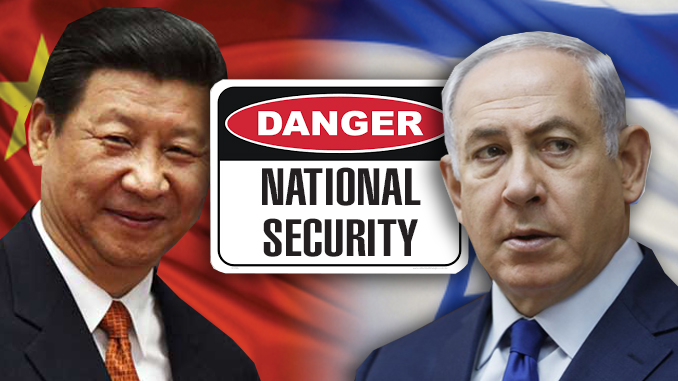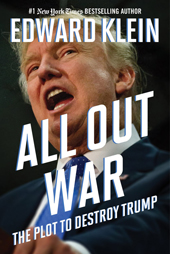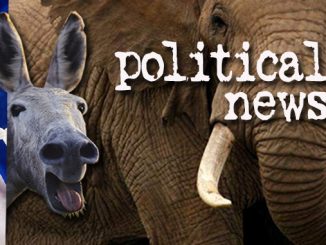
Should Special Counsel Robert Mueller determine who those “others” are referred to by Trump when he said there “could be other people also” that had been involved in interfering in the election, and look into their activities? Russia haters might be surprised.
By Philip Giraldi
President Donald Trump reckoned on Monday that the United States intelligence community (IC) just might be overreaching in its assessment that Russia had sought to interfere in the 2016 U.S. election but then decided on Tuesday that he misspoke and had the greatest confidence in the IC and now agrees that they were correct in their judgment. But Trump, interestingly, added that there “could be other people also” that had been involved in interfering in the election, presumably either in an attempt to understand what was going on or to subvert it, though he was not specific and the national media has chosen not to pursue the admittedly cryptic comment. Many inside-the-Beltway pundits believe that he was primarily referring to China, both due to possible motive and to the possession of the necessary technical resources to carry out such an operation.
Indeed, the China hypothesis gains strength because there are credible reports that China may have hacked the 30,000 Hillary Clinton emails that are apparently still missing. China also was described as America’s principal enemy last week by The Spectator, which denounced Russiagate as much ado about nothing, citing Byron York of the Washington Examiner who described the enterprise as “. . . a small, poorly funded operation with a level of effectiveness that is impossible to measure but could be near zero” before also observing that:
Meddling in other countries is something that sovereign nations, especially rich and powerful ones, do [but] the Russians don’t seem very good at it. The activities outlined in Mueller’s indictments are partly pathetic, partly comical. Beginning in 2014, the Russians took out Facebook and Twitter ads under false names. Some supported Bernie Sanders and Jill Stein. Some attacked Marco Rubio and Ted Cruz. Much of their effort was directed against Clinton. Someone, for example, built a cage to house an effigy of Mrs. Clinton. But the Russians concentrated on Hillary because they, like everyone else, thought she was going to win. Late in the game, they sponsored some pro-Trump ads and events.
While this Kabuki was going on, the Chinese, who have been identified hacking into Pentagon computers, were reportedly also working quietly and methodically to expand their influence worldwide and increase their military readiness. Their military technology has already caught up to that of the United States in a number of areas, and, as America de-industrializes, the advantage to a still-growing China high-tech sector will increase. A number of congressmen have also described China as the number one cyber threat, aided and abetted by illegal technology transfers and widescale industrial espionage.
Identifying just how one interferes in an election in a large country with numerous polling stations located in different states using different systems is, of course, problematical. But a country’s government can be undermined in other ways. A consensus is growing that China is a competitor or even an enemy, according to one White House advisor, a state engaged in “economic aggression” against the U.S. It has apparently eschewed the violent route to obtain hegemony and is instead seeking an empire in the old-fashioned British model, based on economic dominance through penetration of markets and the achievement of comparative advantage. It is the same model that the United States, at least initially, used successfully post World War II.
But Trump referred to “others” in the plural as interfering in the 2016 election. Surely America’s friends and allies would not spy on Washington, or would they? The British or Germans would not be so bold as to hack into U.S. government accounts, but they are certainly quite willing to do random collection of telecommunications information out of their embassies in northwest Washington and their consulates general in places like Seattle and Los Angeles, near defense industry hubs. Those antenna and dish arrays on the tops of their buildings are not there to enable telephone calls to the homeland.
And then there is, of course, Israel. Trump continues his delusional babble on how wonderful Israel is, even citing it in his Helsinki press conference comments:
We’ve worked with Israel long and hard for many years, many decades. I think we’ve never, never has anyone, any country been closer than we are. President Putin also is helping Israel and we both spoke with Bibi Netanyahu and they would like to do certain things with respect to Syria, having to do with the safety of Israel. So in that respect, we absolutely would like to work in order to help Israel and Israel will be working with us. So both countries would work jointly. . . . But I think that their working with Israel is a great thing and creating safety for Israel is something that both President Putin and I would like to see very much.

Israel’s intelligence operations directed against the American government and people are well-documented and have been going on for 70 years. Their propaganda has clearly convinced Trump and others like him, but Israel is the aggressor in the Middle East, not the victim, and is a strategic liability for the United States, though it would be difficult to explain that to the president in ways that he would understand. Some might argue that Israel does not need to steal U.S. secrets because we Americans share everything with them anyway. That would not be correct, as Israel features as No. 1 on the FBI list of foreign countries that are ostensibly friendly that spy on the U.S. Israeli companies also provide the telecommunications technology that enables it to tap into phones nationwide, including at the White House.
So Russiagate is a lot less than it seems while competitors and friends have also been interfering in how our government runs and thereby compromising national security. One might propose that Special Counsel Robert Mueller determine who those “others” referred to by Trump are and begin to look into their activities. The results just might surprise a lot of Russia haters.
Philip Giraldi is a former CIA counter-terrorism specialist and military intelligence officer and a columnist and television commentator. He is also the executive director of the Council for the National Interest. Other articles by Giraldi can be found on the website of the Unz Review.



Re: The 30,000+ Hillary Clinton’s “missing emails that are apparently still missing” utter FARCE:
Why don’t “they” ask the NSA to dig through its archives to get them?
Re: Trump vs Israel:
A man as intelligent and knowledgeable as Trump could not possibly ignore what Israel has been doing – and keeps doing -.
There are therefore “unexplained” reasons for his behavior towards the zionists.
Outright bribery is one possibility.
MOSSAD’s blackmail (a specialty…) is another.
Any other suggestions?